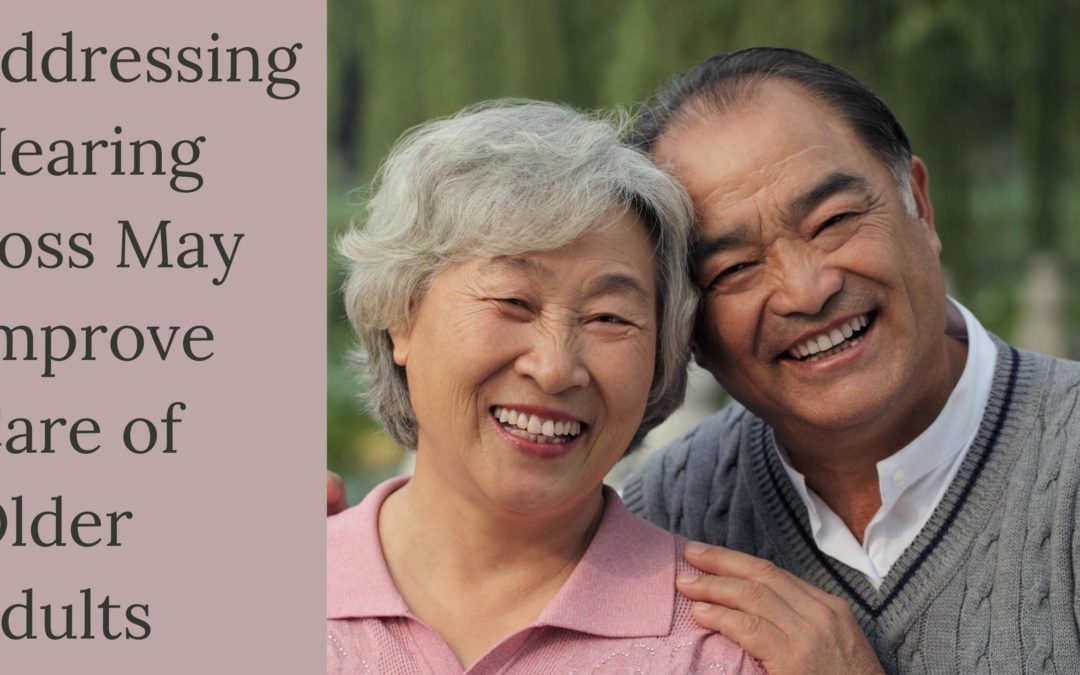If you are responsible for the care of a senior, there is a good chance that they are, or will be dealing with hearing loss. Hearing loss is the third most chronic health condition faced by older people, affecting one in three people over 65 and half of those over 70. While hearing loss begins with the ears, its effects on communication spread across many diverse long-term aspects of health. Even so, the National Institute on Deafness and Other Communication Disorders, projects that only a third of those with the condition receive effective treatment. It is important to address a potential hearing loss before it can become a much more severe issue.
Age-Related Hearing Loss
Age-related hearing loss, also known as presbycusis is the most common cause of hearing loss. Hearing loss develops when tiny hair-like cells of the inner ear, which send audio signals to the brain, become permanently damaged or destroyed. While there are many causes of this kind of damage, presbycusis occurs from a lifetime of stress on the inner ears.
Diagnosing Hearing Loss in Seniors
It is estimated that if you live to be 100 years old, there is a 100% chance that you will have hearing loss. Understanding that the risk is this common, it’s important to diagnose and begin treatment as soon as possible.
Knowing the signs of hearing loss can help you diagnose and seek treatment: If they ask you to repeat yourself more often than not, seem disinterested or distant when speaking, struggle to hear you over the phone, or turn up the TV to the max volume, then this signifies that some degree of a hearing loss is most likely present.
The Impact of Hearing Loss on Seniors
Communication issues can build up over time. If you are close with a senior who seems to have hearing loss, you are most likely already have noticed your relationship feeling more distant than before. This is not due to old age, but because they may be struggling to hear you. This can make it hard for them to follow your speech and respond appropriately.
Over time, they may choose to avoid social situations and conversation as it can be incredibly exhausting for them to follow. It can be equally frustrating for them to not be able to hear, causing chronic anxiety and depression. Social interactions for seniors are especially important for emotional, mental and physical health. Spending time with others reduces the potential for social isolation in the elderly which can increase the likelihood of cognitive decline and dementia. It can cause the seniors you care for to be less active, less physically fit and more prone to falls and hospitalization.
The Importance of Treating Hearing Loss in Healthcare Environments
Despite the high rate of hearing loss in seniors it is often unaddressed. While there are movements for hearing care to be covered under public and private insurance, currently this is not a widely accepted option. This means that it is often up to you and the senior you care for to take hearing health into your hands. Navigating the healthcare environment can be difficult when your hearing is compromised. It is difficult to hear the nurses and doctors’ instructions, especially in a noisy medical office. Because of this, many reports show doctors make fewer trips to the rooms of patients with a hearing impairment and spend less time in the room when they visit. Instead of healthcare professionals making accommodations for the hearing impaired, all too often they are readmitted due to missed information and instruction.
Benefits of Hearing Aids for Older Adults
The most common treatment for presbycusis is hearing aids. These tiny devices amplify the sounds which are difficult to hear, making conversation much easier. This can make it much easier for the seniors in your life to communicate with you, stay social, and fight cognitive decline. Engaging more freely in everyday life activities improves one’s sense of freedom and confidence which ultimately affects overall well-being. Caring for a senior means addressing their hearing. Make sure to set up a hearing test for your loved one and help them get on track for the highest quality of life possible.


